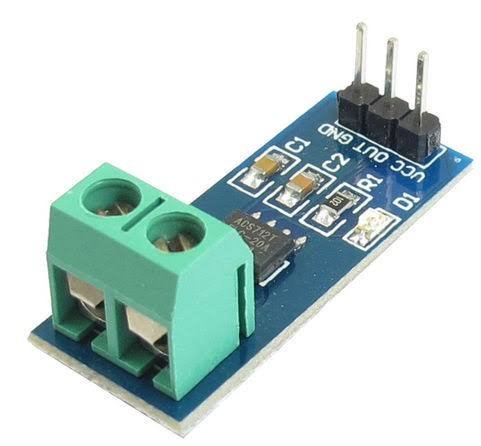Contents
- 1 General Description
- 2 ACS712 Series Top Features & Benefits
- 3 Instructions
- 3.1 Where to Use ACS712 Series
- 3.2 How to Use ACS712 – Improvement for Sensing Mechanism Accuracy
- 3.3 ACS712 and ACS713 FAQ
- 3.3.1 – Is it possible to connect the ACS712 and ACS713 to both DC and AC currents?
- 3.3.2 – What components are suggested for the ACS712/713 applications?
- 3.3.3 – Is it possible to adjust the gain on the ACS712 and ACS713?
- 3.3.4 – How low of a current can the ACS712 solve?
- 3.3.5 – Is there a guideline for applying ACS712?
- 3.3.6 – How does the ACS712 perform in terms of overcurrent tolerance?
General Description
In industrial, commercial, and communications applications, the Allegro ACS712 delivers cost-effective and accurate AC or DC current sensing solutions. The gadget packaging makes it simple for the client to use. The gadget is made up of a linear Hall sensor circuit with a copper conduction route near the die’s surface that is precise and low-offset.
The magnetic field generated by the applied current flowing via this copper conduction line is measured by the integrated Hall IC and transformed into a proportional voltage. The magnetic signal is kept near to the Hall transducer, which improves device accuracy. The low-offset, chopper-stabilized BiCMOS Hall IC, which is configured for precision after packing, provides a precise, proportional voltage.
ACS712 Series Top Features & Benefits
• Innovative low-profile packaging techniques that improve the performance
• Compatible with standard lead-free PCB
• Factory style trimmed available
• Ultra-stable offset output voltage
• Approximately 0 magnetic hysteresis
• Brand new FILTER pin sets device bandwidth
• Ratiometric output derived from the supply voltage
ACS712 Pinout & Function
ACS712 SOIC-8 Package Dimension (in mm)
ACS712 Block Diagram
Instructions
Where to Use ACS712 Series
Motor control, load detection and management, switched-mode power supply, and overcurrent fault prevention are all common uses for the ACS712 current sensor.
How to Use ACS712 – Improvement for Sensing Mechanism Accuracy
Unwanted signal attenuation can be avoided by tuning the ACS712’s FILTER pin rather than using an external RC filter. The resistive divider effect between the resistance of the external filter, RF, and the input impedance and resistance of the customer interface circuit, RINTFC, causes signal attenuation, VATT.
An internal resistor, a FILTER pin connection to the printed circuit board, and an internal buffer amplifier are all included in the ACS712. The addition of a capacitor, CF from the FILTER pin to the ground, can be used to create a basic RC filter with this circuit layout.
The attenuation induced by the resistive divider effect indicated in the equation for VATT is eliminated by the buffer amplifier within the ACS712 (placed after the internal resistor and FILTER pin connection). As a result, the ACS712 device is suited for high-precision applications that cannot afford the signal attenuation caused by an external RC low-pass filter.
ACS712 and ACS713 FAQ
– Is it possible to connect the ACS712 and ACS713 to both DC and AC currents?
The ACS712 and ACS713 employ Hall Effect technology, which is compatible with both DC and AC electrical currents. The common bandwidths are 80 kHz.
– What components are suggested for the ACS712/713 applications?
Between the VCC and GND pins, Easybom advises using a 0.1F bypass capacitor. The capacitor should be placed as near to the ACS712 and ACS713 package body as possible.
– Is it possible to adjust the gain on the ACS712 and ACS713?
Allegro programs the ACS712 and ACS713 mV/A sensitivity and 0-ampere quiescent voltage levels.
– How low of a current can the ACS712 solve?
The ACS712’s resolution is restricted by its noise level. Please see the table above for further information on filtering criteria.
– Is there a guideline for applying ACS712?
The inductance of the current route to be measured should be kept to a minimum. Also, any connections along that channel should have as little contact/connection resistance as possible.
– How does the ACS712 perform in terms of overcurrent tolerance?
The ACS712 can tolerate a maximum of 40 A at an ambient temperature of 85°C before reaching the maximum thermal junction temperature of 165°C, according to steady-state thermal testing with continuous DC (or AC RMS) current based on Allegros ASEK712 demo board. The ACS712 can endure up to 20 A before reaching a junction temperature of 165°C when the ambient temperature is as high as 150°C.
(Summarized by Easybom)




